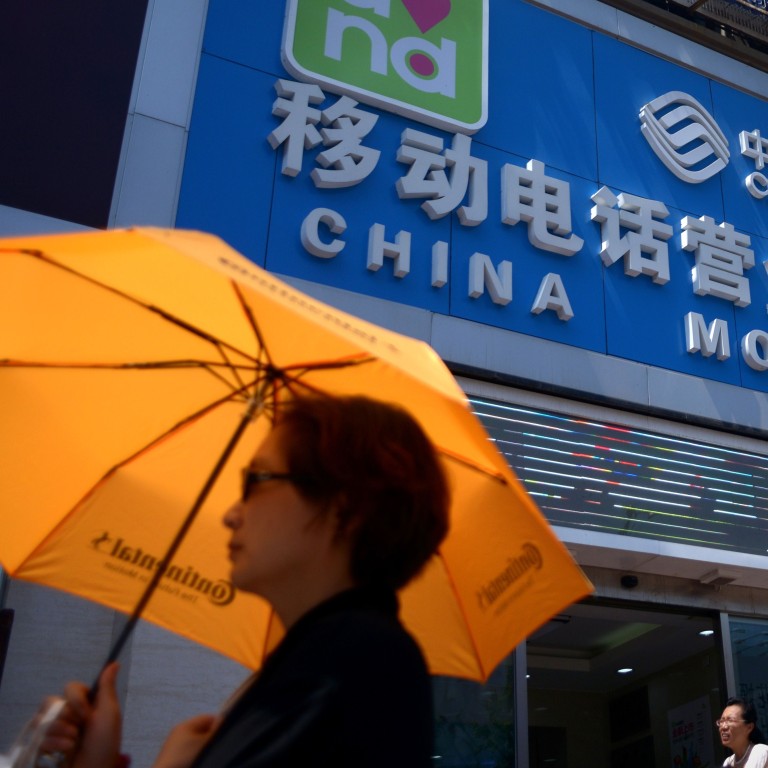
Chinese premier Li Keqiang meets resistance as telecom operators fail to cut fees
China’s top three mobile and telecom operators have not taken any concrete steps to reduce internet fees despite pledging to do so one month ago, several days after premier Li Keqiang called for change.
On May 15, China Unicom announced that it would cut its mobile data fees by 20 per cent. One the same day, China Mobile vowed to lower its charges by more than 35 per cent, while China Telecom said it would reduce its unit bandwidth fees by 35 per cent.
Their pledges came three days after Li said there was a need for increased internet speeds and lower charges to promote internet innovation.
He said the government could not fix internet fees but that if companies cut their charges, it would boost the use of their services, thereby increasing the operators' overall profits.
Still, none of the moves have yet been fully implemented, China News Agency reported on Monday.
Instead, the carriers promoted a range of new services by offering conditional discounts.
China Telecom said in May it would start charging 60 yuan (US$9.64) per GB of 4G mobile data in excess of a subscriber’s monthly package. But for the first 200 MB, it would stilll charge 0.3 yuan per MB, which works out to be 50 times more expensive.
Rival China Mobile promised to start giving away one free GB of mobile data for use at night for every 1-GB data package purchased. Some critics see this as a halfway gesture as subscribers tend to use less data at night.
The carrier said it would lower fees for travel outside the Chinese mainland, including to Hong Kong, Macau and Taiwan, but did not announce a date for commencement.
China News Agency reported that most Chinese customers subscribe to a 10 Mbps broadband fee. However, due to infrastructure problems, many only get access to 4Mpbs, the national average internet speed.
The country has over 630 million internet users and 570 million mobile subscribers. For many, the fees are considered expensive relative to their income.
People who live in Chinese cities and earn 2,000 yuan to 4,000 yuan a month pay about 100 yuan for broadband and 50 yuan for 1GB of mobile data per month.
China’s State Council launched its "Broadband China" strategy in 2013 to increase internet speeds. One of the aims was to increase access to 100Mbps fibre optic connections in cities, and also broaden the availability of fibre optic connectivity in rural areas by 2017.
Ma Jihua, a telecom industry analyst, told China News Agency that it will take some time for telecom operators make the switch as they need to meet their profit margins.
“Fully implementing the reduced charges would greatly impact their profits,” he said.
He said the problem was further being compounded by a slowdown in the growth of internet and mobile internet users in China, as reflected in the three operators’ reports of new users in April.
China’s smartphone market slowed for the first time in six years in the first quarter of 2015, according to technology research company International Data Corporation (IDC).
This is not the first time Li has seen a slow response to his calls for change.
When he tried to push for the launch of the Shanghai Free-Trade Zone in2013, he also encountered strong resistance from various ministries, which signaled a growing power struggle within the government.
The zone, the first free trade area of its kind in mainland China, was modelled on Hong Kong’s free port. It has now been up and running for over a year.
Moreover, it is no secret that the central government has experienced increasing difficulty in coordinating with different ministries and local governments.
A popular joke now doing the rounds in China states that "policy orders can only be known within Zhongnanhai". This refers to the central government's head office near Tiananmen Square in Beijing, where president Xi Jinping and premier Li Keqiang work.
"China is the world's biggest mobile phone market, but internet speeds are ranked worse than 80th in the world. Our information infrastructure is backward," a frustrated Li said at a conference in May.


